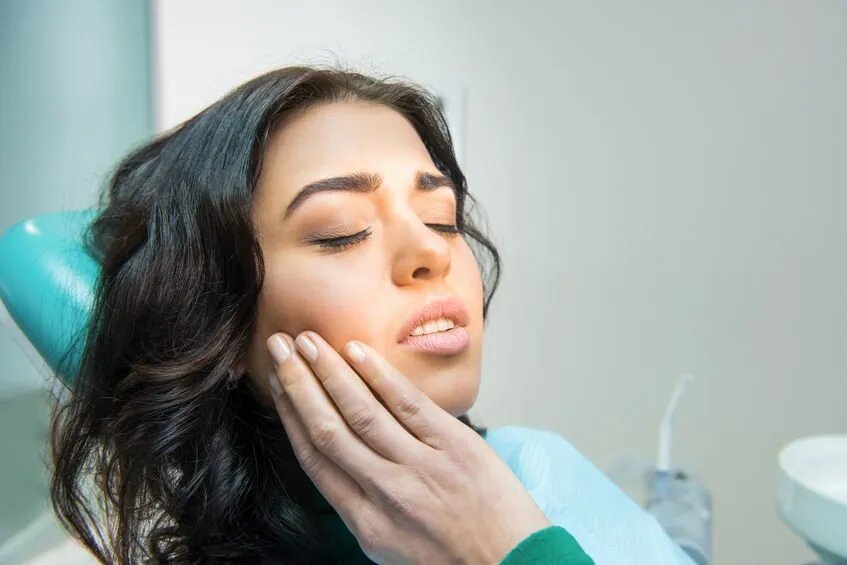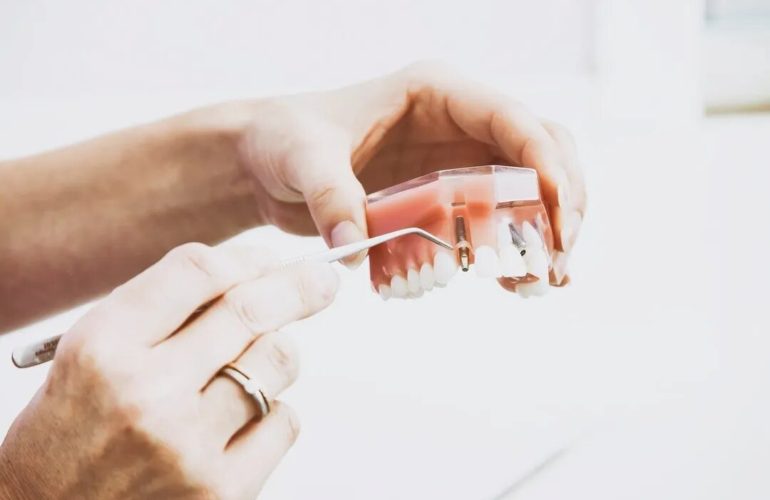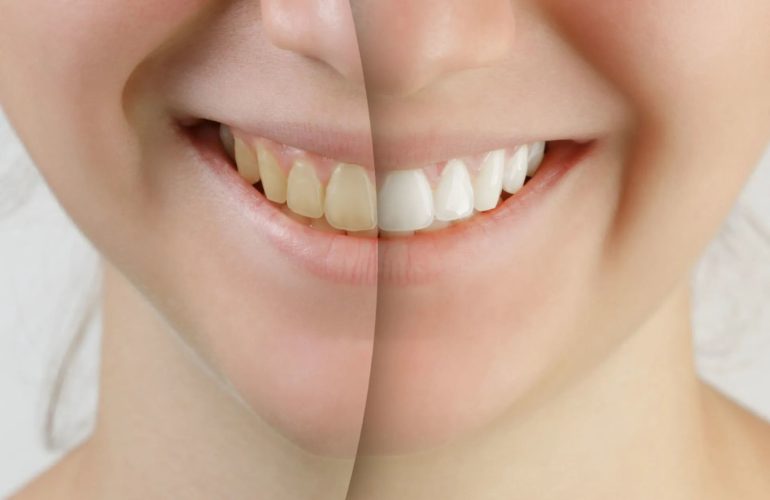We all have bacteria in our bodies. Some bacteria are necessary and helpful, while others can cause harmful infections that lead to illness. If left untreated, the cavity-causing bacteria in our mouths can cause infections in our bodies.
How are Abscesses Formed?
When bacteria from the food we eat gets stuck in our teeth and gums, the result can be an infected tooth, and in some cases, an abscess.
An abscessed tooth can have several symptoms, including throbbing pain near a tooth or your gums, pain that is worse when you lie down, pain, swollen gums, tooth sensitivity, a foul taste in your mouth, and/or fever. When an abscess ruptures, you will almost immediately feel better. You may also have a bad taste in your mouth from the draining pus.
An abscess in a tooth is caused by untreated tooth decay, periodontal disease, or a crack in a tooth. An abscess is a pocket of pus in the gum line, root, or surrounding bone of the teeth. Dentists fix an abscess by draining it so it doesn’t spread into the bloodstream. If this happens, it’s called “bacterenemia.” In healthy individuals, their immune system will likely destroy the unfamiliar bacteria. But, in older adults or individuals with compromised health, the bacteria in the blood may not be destroyed.
Bacteria in the blood can move around the body, spreading infection and leading to serious complications. It can travel to places such as the lungs, causing pneumonia, or to the brain, causing meningitis.
Types of Abscesses
If you suspect you have an abscess in your mouth or if your dentist finds one during your next exam, don’t panic. Here are the three most common types of oral abscesses and how they’re treated.
·
Gingival or Gum Abscess:
“Gingival” means that the abscess is in the gum tissue of the mouth. When this is the case, your dentist will need to remove or drain the infection. If it has spread, a root canal or tooth extraction may be necessary.
· Periodontal Abscess:
Periodontal disease is when the gums and bone, or “periodontal tissues” that hold our teeth in place are infected. Periodontal abscesses are most common in individuals with untreated periodontal disease. Your dentist will conduct a variety of exams to determine what course of treatment best suits your case. It may include a deep cleaning to remove any plaque that is stuck beneath the gum line.
· Periapical Abscess:
Periapical disease happens as a result of your body fighting back against bad bacteria. When this occurs, tissue retreats away from the source of the infection. It creates a space for our body’s defense system to fight right up next to the infection. A periapical abscess forms when the infection spreads and creates a collection of pus at the root of a tooth. Dentists will often drain a periapical abscess and prescribe antibiotics to help eliminate the infection.
Can a Tooth Abscess be Fatal?
While it’s rare to die from complications with a tooth abscess, it can happen. Every year there are cases of a tooth infection leading to death. A 9-year study found that a total of 61,439 hospitalizations in the U.S. were primarily attributed to periapical abscesses. Of those hospitalizations, 66 patients died in the hospital.
If left untreated, the infection from a tooth abscess can spread throughout the body. The infection can enter your bloodstream or bones and make its way to vital organs. An abscessed tooth can cause sepsis, pneumonia and Ludwig’s angina, which is an infection under the tongue that causes swelling and difficulty breathing.
All abscesses should be treated by a dentist, even if they have already ruptured. A dentist will examine the area and clean it out to ensure the infection doesn’t spread.
Visit Dr Soni’s Dental Clinic to Maintain a Healthy Smile
A healthy smile is a valuable asset in everyday life but requires proper care, including to help prevent infections and gum disease. At Columbia Pike Family Dentistry, we want to help keep you healthy and happy, and that starts with regular dental visits. We take measures to protect both your health and your wallet, by detecting or preventing potential problems. Contact us today at +91-11-2984-5555 to make an appointment for a check-up and cleaning, or for all of your other dental needs. We are currently open and following all CDC guidelines to safely help you with all of your dental needs.




